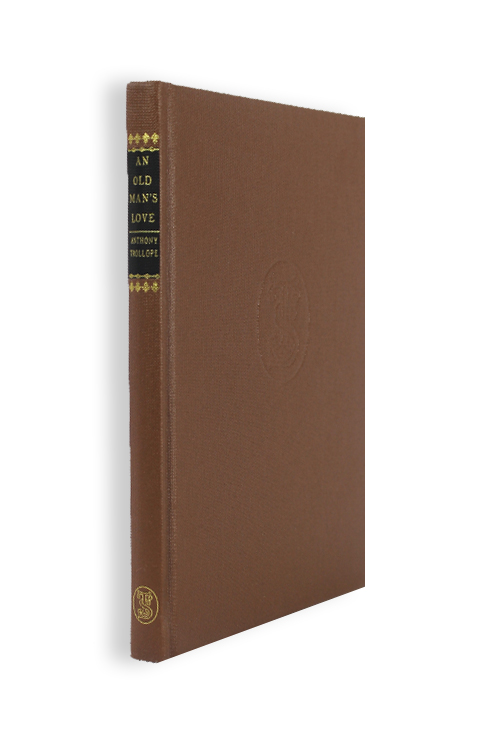Old Man’s Love, An
£25.00
Available to members only
Introduction by David Skilton
172 pages
First published: Edinburgh and London, Blackwood and Sons, 1884. 2v.
Out of stock
William Whittlestaff, having lost the woman he loved to a richer, more lively rival many years before, lives alone at Croker Hall in Hampshire, looked after by his loyal, vituperative housekeeper Mrs Baggett.
Mr Whittlestaff impulsively takes in as his ward the orphaned daughter of an old friend, nineteen year-old Mary Lawrie, much to Mrs Baggett’s disapproval. She – rightly – suspects that Mary’s arrival will eventually lead to her master falling in love with the girl, who will supplant her as head of the household. The reserved, unworldly Mary gradually warms towards the lonely bachelor, and he eventually asks her to be his wife.
Mary has only briefly experienced love three years before, with John Gordon, a penniless Oxford student who was sent away by her step-mother as a bad prospect. Mary accepts Mr Whittlestaff, but not before making him aware of the history of her short and painful dealings with John Gordon. He dismisses this knowledge, allowing that Mary ‘may think of him’ from time to time, but privately presuming the young man to be safely out of her life. But John Gordon unexpectedly arrives at Croker Hall. Fresh from the diamond fields of South Africa where he has made a considerable fortune in order to make himself worthy of Mary, he has come to renew his suit, and she finds herself caught in an impossible situation, feeling incapable of jilting the man whose proposal she has so recently accepted. Mr Whittlestaff, though well aware who it is that Mary really loves, is unwilling to be rejected himself once again, and reluctant to release her from her promise. John Gordon, unable quite to give up hope, goes to stay for a few days with an old university friend, Montagu Blake, a curate who lives nearby. The battle is on for the hand of Mary Lawrie.
An Old Man’s Love is the work of an old author. Although Mr Whittlestaff is far from old – he is only fifty – Trollope’s portrait of him reflects something of his own sense of having outlived his time. Mr Whittlestaff senses this too, just as he foresees the inevitability of what will happen. Scattered through the book are some sharp and humorous minor character sketches: the outspoken Mrs Baggett, whose waspish tongue hides a deep affection for her employer; her estranged, drunken husband, Sergeant Baggett; the gauche, tactless Mr Blake, blithely ignoring Mr Whittlestaff’s pain as he pushes the claims of John Gordon; and the merry, lively Hall family at Alresford, a household which is full of life and youth. Through all of this, William Whittlestaff carefully picks his way towards a decision which, though inevitable, will also quietly break his heart.
This was Trollope’s last completed work, published posthumously in 1884.
